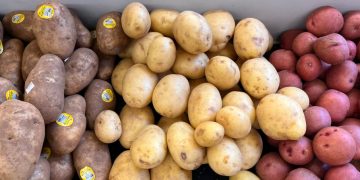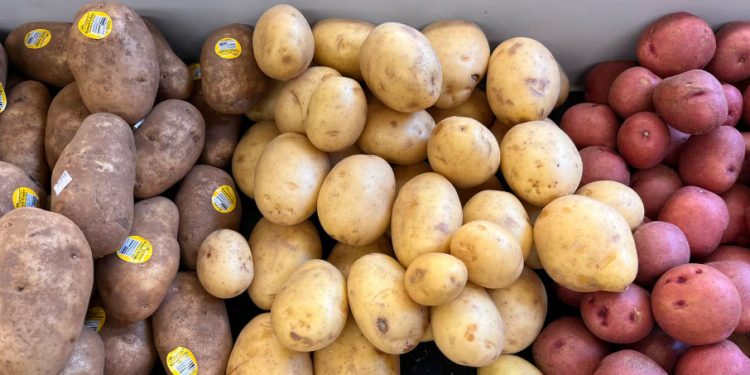Kathie L.’s humorous observation about potatoes being covered at night raises a valid question: Why do stores treat them differently from other vegetables? The answer lies in their botanical family—the Solanaceae, or nightshades. This group includes tomatoes, eggplants, peppers, and even toxic plants like deadly nightshade (Atropa belladonna) and henbane (Hyoscyamus niger).
When potatoes were first introduced to Europe from the Americas, they were met with suspicion—and for good reason. Many nightshades produce alkaloids, natural compounds that can be toxic in high doses. While modern varieties of potatoes are safe to eat, they still produce solanine, a mild neurotoxin, when exposed to light for prolonged periods.
The Science of Solanine: How Light Affects Potatoes
Research shows that solanine and chaconine (another glycoalkaloid) increase when potatoes are exposed to light, causing them to turn green due to chlorophyll production. While the green color itself isn’t harmful, it’s a visual indicator of elevated toxin levels.
According to a 2023 study by the USDA, solanine concentrations can rise from 3-10 mg per 100g in normal potatoes to over 20 mg per 100g in green or sprouted potatoes. The FDA considers levels above 20 mg/100g unsafe for consumption, potentially causing nausea, headaches, or gastrointestinal distress. While fatal poisoning is rare (requiring ingestion of 2-5 mg per kg of body weight), grocery stores take precautions to minimize risk.
Modern Grocery Practices: Why Covering Potatoes Matters
Supermarkets use breathable tarps or blankets to:
- Block artificial light, preventing solanine formation.
- Maintain optimal storage conditions (cool, dark environments slow sprouting).
- Reduce food waste by extending shelf life.
Interestingly, LED lighting in stores may accelerate greening compared to traditional fluorescent lights, as found in a 2022 study in Postharvest Biology and Technology. This makes nighttime covering even more crucial.
A Simple Practice with Deep Roots
Covering potatoes isn’t just a quirky grocery habit—it’s a science-backed food safety measure. While modern potatoes are far safer than their wild ancestors, their nightshade heritage means they still require careful handling. So next time you see a tarp over the spuds, remember: it’s not about giving them a good night’s sleep—it’s about keeping your dinner safe!































